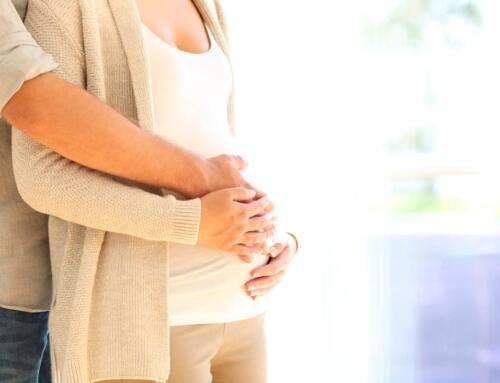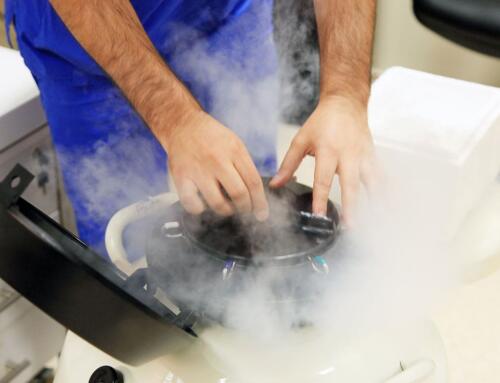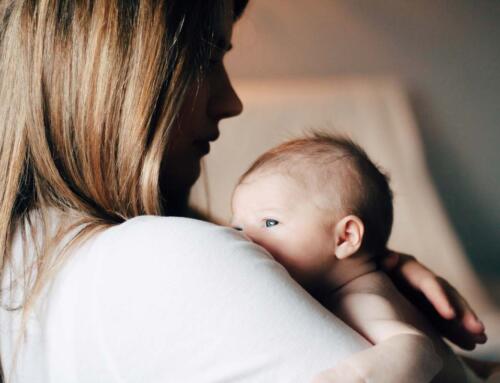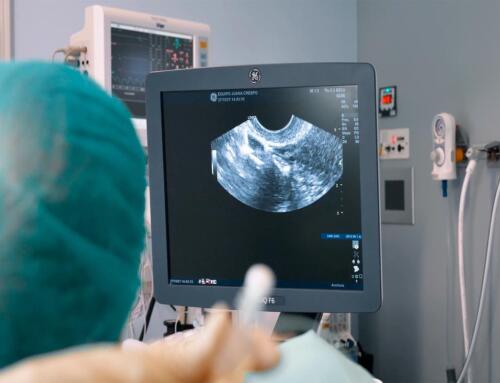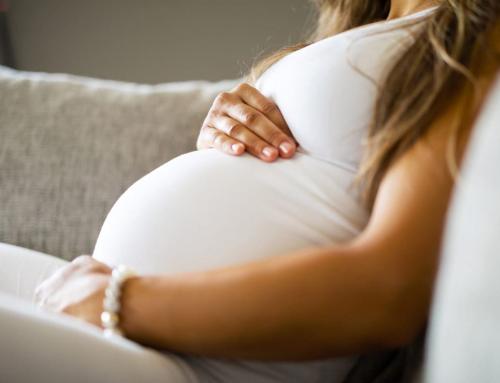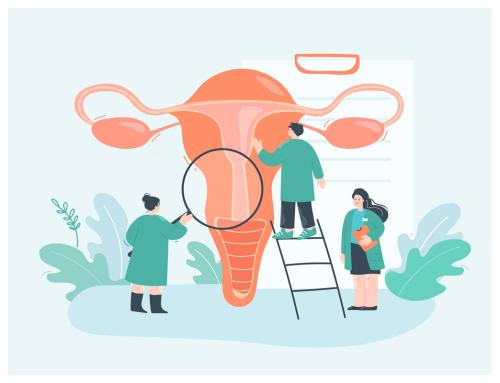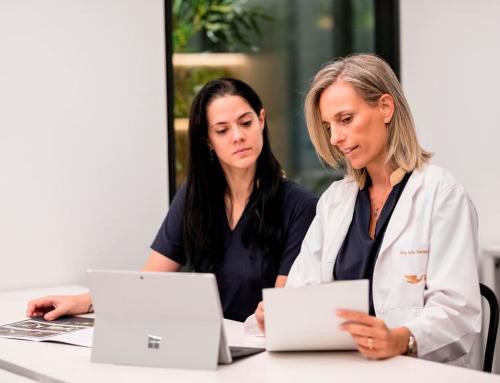The emotional impact of the diagnosis of “menopause” in young women can be, in some cases, devastating. Not only because of the physical changes, which influence the quality of life, or because of the decrease in self-esteem, but also because it hinders the plans of motherhood in many women who are considering pregnancy at that time.
If you too have been diagnosed with early menopause and wish to become a mother, it is important to keep in mind that the fact that you are not getting your period does not mean that you are sterile. Occasionally, early ovarian failure can reverse spontaneously or function intermittently.
In fact, it is estimated that about 5% of women with premature ovarian failure achieve pregnancy after spontaneous ovulation.
However, although spontaneous pregnancy is complicated, assisted reproduction can greatly increase the chances of achieving pregnancy with early menopause.
What is early menopause?
Premature menopause, also known as premature ovarian failure, is the ending of your menstruation before the age of 40 due to loss of ovarian function and reduced estrogen production.
The age at which you go through menopause is determined by the ovarian reserve you have at birth and by the rate at which the ovarian follicles wear out during the menstrual cycles. This wear and tear begins to be noticed, as a general rule, between the ages of 45 and 55. However, if it happens before the age of 40, we speak of early menopause, something that happens to 1% of women.
Why does early menopause occur?
The causes of early menopause are varied.
Many women with early menopause have a family history of similar cases. So, if your mother or grandmother also went through menopause before the age of 40, it is possible that your premature ovarian failure is due to genetic causes (chromosomal alterations or hereditary abnormalities).
It may also be due to an increased reaction of the immune system against the ovarian follicles, which are destroyed. This could happen to you if you have an immune-mediated disease such as diabetes, Addison’s disease, lupus, hypothyroidism, vitiligo, rheumatoid arthritis, etc.
If you have had to undergo chemotherapy or radiotherapy treatment, as well as gynecological surgery (cysts, endometriosis, etc.) it is also possible that this is the cause of the decrease in your ovarian reserve and the consequent premature menopause.
What are the initial symptoms of early menopause?
Do you suspect that you are going through early menopause? If so, the first thing you should do is look at the regularity of your menstrual periods. Although the first warning sign is the disappearance of menstruation at an early age, there are also other symptoms such as:
- Sudden mood swings
- Hot flashes
- Insomnia or difficulty falling asleep
- Vaginal dryness
These, added to other less common changes, are more than enough reason to consult your gynecologist for a check-up.
Through the study in your blood analysis of certain hormones, such as estradiol and FSH and very low levels of antimüllerian hormone, you could have your diagnosis. Also a vaginal ultrasound showing atrophied or reduced size ovaries, as well as little or no follicular reserve, could confirm this diagnosis.
It is important that the diagnosis be made as early as possible. The sooner you know what your condition is, the sooner we can prescribe the most appropriate treatment for you. Not only to achieve pregnancy, but also to avoid other consequences of early menopause. You should bear in mind that the drop in estrogen has an impact on the appearance of cardiovascular problems, as well as osteoporosis.
Can early menopause be prevented?
Menopause cannot be prevented, but you can know how likely it is that it will come earlier than expected. This information would give you the possibility to think and make decisions in time.
Nowadays, we can measure the ovarian reserve with markers that allow us to know the number of oocytes in the ovaries. Therefore, if you have a family history or if you have been warned at your gynecological check-up about this possible problem in the future, we advise you two possibilities: not to delay your maternity or, if you decide to do so, to preserve your fertility by vitrification of your eggs or embryos.
By preserving your fertility, you increase your chances of having children in the future, even if menopause comes early.
How to become pregnant with early menopause?
The chances of achieving a spontaneous pregnancy with early ovarian failure are slim. But do not be discouraged because you still have options through assisted reproduction.
If you were able to freeze your own eggs or embryos at an earlier age, this is the ideal time to use them. If you were not able to do so, the most common recommendation is to undergo an oocyte donation treatment. That is, receiving donor eggs or even the donation of an embryo donated by another couple.
IVF with donated eggs offers very high success rates and, if in your case you are a young woman, even more so.
But at Equipo Juana Crespo, before reaching oocyte donation, we can offer you more pregnancy options with your own eggs, even if your diagnosis is an occult ovarian failure:
Personalized treatments
In our team we are specialists in highly complex reproductive medicine and we always perform completely personalized treatments for each patient. Only in this way, in the case of premature menopause, it is possible to achieve an adequate number of eggs that allow us to fertilize embryos in our IVF laboratory.
We fight for each of the eggs and even make a selection of the most appropriate cycle in which to perform ovarian stimulation. We leave nothing to chance.
Once the embryos are obtained, we make sure that the uterine conditions are ideal to ensure that she stays with you for the next 9 months.
Ovarian rejuvenation
It is one of the most innovative techniques that we develop in our clinic.
Through laparoscopic surgery the ovary can be reactivated so that, improving its vascularization, we try to obtain more competent oocytes that offer us the possibility of creating valid embryos to achieve the desired pregnancy.
The techniques of ovarian rejuvenation are still in development but, in Juana Crespo, this procedure is another attempt to recover as many eggs as possible in women with early menopause or with low ovarian reserve.
As you can see, early menopause is not the end of your childbearing aspirations. Nowadays, you have different options to become pregnant with early menopause, even with your own genetic material.
If you have a history of early menopause or you have already been diagnosed and the baby does not come, contact us. We have professionals specialized in the most complex cases, capable of developing the latest techniques to temporarily reverse early ovarian failure.
Book your first visit and solve all your doubts at 961 042 557 or write us at info@juanacrespo.es.



